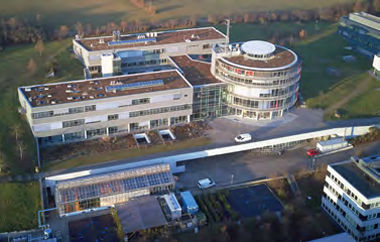The MPI-BGC was founded in 1997 by the Max Planck Society, Germany's most successful non-profit research institution that encompasses 84 Max Planck Institutes with nearly 23,000 employees. In total, 18 Nobel laureates have emerged from the ranks of its scholars. Basic research in Max Planck Institutes follows the Harnack principle: The institutes are created exclusively around worldwide leaders in science. These leaders themselves decide which research topics they would like to pursue and select their employees based on their needs.
With approx. 220 employees, including 90 scientists and 45 PhD students the MPI-BGC in Jena sees its overall scientific mission in diagnosing and tracing ongoing changes in global biogeochemical cycles as well as identifying the key processes that govern global biogeochemical dynamics under current and past or future environmental conditions. Furthermore, MPI-BGC contributes to the understanding of how living organisms – including humans – exchange fundamental resources like water, carbon, nitrogen and energy with their environment, and how this affects and responds to global climate and environmental change.
The institute is divided in three departments, reflecting its main research approaches: the Department for Biogeochemical Processes, the Department for Biogeochemical Integration and the future Department for Biogeochemical Signals that emerges from the former Department for Biogeochemical Systems. Independent research groups complement the departmental approaches in specialized areas around global biogeochemistry of the past, present and future.
Furthermore, the varied scientific backgrounds of the Max Planck Institute for Biogeochemistry’s researchers and PhD students, 40% of whom being foreign nationals from 25 different countries, enables highly interdisciplinary biogeochemical research with a strong international focus, to address problems on the global scale. Through international collaborations, the institute offers unique opportunities to conduct research remotely from exotic locations worldwide.






